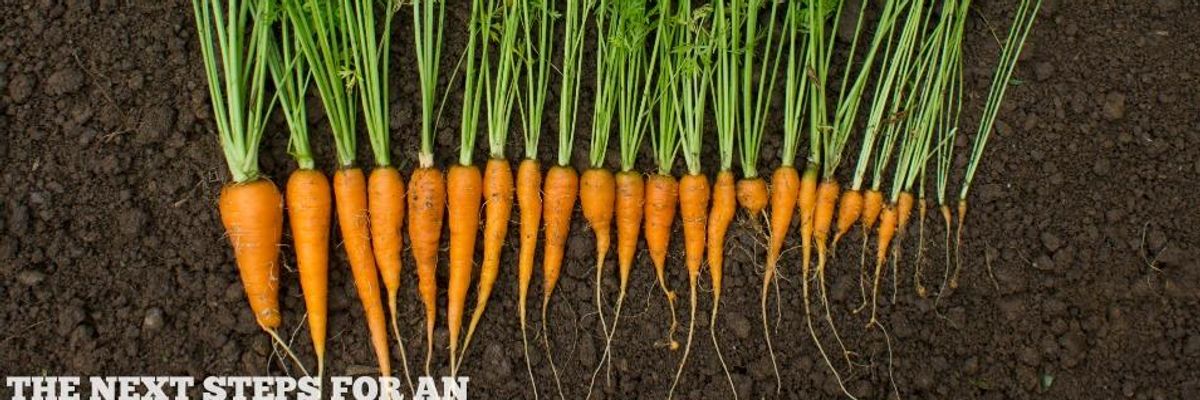This October, I took a walk. A walk that, I hoped, would change the way that we look a climate change and think about how we can reverse this disastrous phenomenon.
I walked to bring awareness to research proving that a global transition to regenerative organic agriculture can reverse climate change and to hand deliver this data to the United States Department of Agriculture.
This journey took me from the Rodale Institute in Kutztown, PA to USDA headquarters in Washington, DC. Along the way, I had the honor of meeting with farmers, local public officials, community members, students and activists. Every person I met was impacted by the effects of climate change. From the disastrous hail storm that occurred in Reading, PA earlier this year to the local fisherman and their concern that Atrazine was found in spawning beds of smallmouth bass in the Susquehanna River. Climate change affects us all and the impact and destruction caused by catastrophic weather events is more noticeable with each passing year.
"Ultimately, it is possible for the health of the entire planet to constantly improve, if the global community adopts the Regenerative approach."
On the sixteenth and final day of my walk, staff from the Institute joined me on the final leg into D.C. where we presented our white paper on reversing climate change to USDA experts on climate change, organic transition, and conservation. The meeting illuminated specific areas where Rodale Institute's research and perspective could be important contributions to the work of the USDA. For example, Rodale Institute will begin utilizing GRACEnet (Greenhouse gas Reduction through Agricultural Carbon Enhancement network) practices, a system of metrics for measuring carbon emissions and sequestration on agricultural lands. By adopting GRACEnet, Rodale Institute's research data will be 'in the same language' as USDA data.
This meeting also helped us to realize that we must strengthen the voice to bring global attention to this word in particular: 'reverse.' There has been plenty of talk from policy makers about reducing carbon emissions, but even if we reduce emissions, we will still face climate change due to immense excesses of carbon and other greenhouse gases in the atmosphere.
Only healthy soil has the capability to sequester these levels of carbon and actually begin to draw down those excesses to reverse the greenhouse gas effect. It's an elegantly simple solution based on photosynthesis and healthy.
We've added the word 'Regenerative' to the term 'Organic Agriculture' to drive home the idea of constant improvement. Regenerative not only describes methods of soil management which would result in constantly improving soil health, but the word also describes practices that communities could adopt which would result in constant improvement. Ultimately, it is possible for the health of the entire planet to constantly improve, if the global community adopts the Regenerative approach.
It is in this spirit of constant improvement that we focus on the next Walk for an Organic Planet. In 2015, we are excited to open up the Walk for an Organic Planet to farmers, local public officials, community members, students and activists in the United States. We want you to share in our journey and walk with us.
We will plan individual 'Organic Walks' in every state. Every group of Walkers will deliver the most up-to-date research from Rodale Institute to their policy makers. They will all help to raise funds for continued research and outreach that will benefit organic farmers. This self-improving cycle of funding more research and outreach will continue to strengthen the collective voice with which we call for this global transition to an Organic Planet.
There is one single goal, and every Walk, in every state, has the same destination: an Organic Planet. We will keep walking until we have an Organic Planet. Just as a garden maintained with regenerative organic practices will improve in soil health every year, the Walk for an Organic Planet is sure to constantly improve every year, bringing us that much closer to the reality of an Organic Planet.

